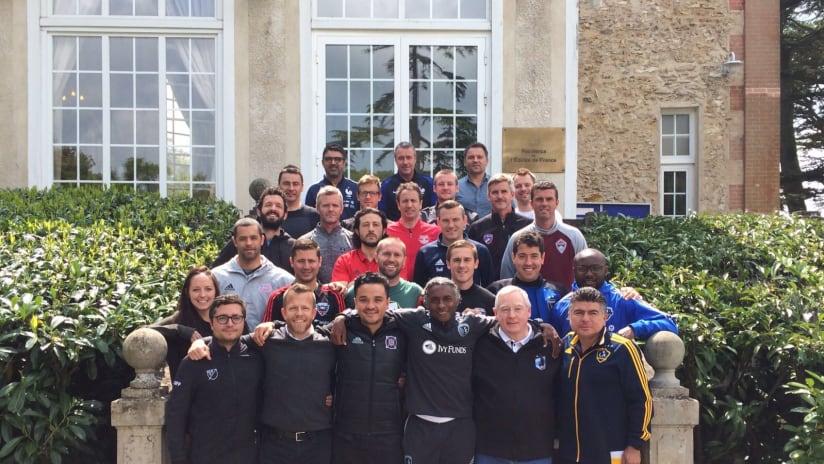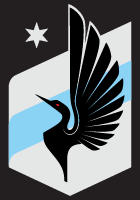Prior to the first round of Development Academy tryouts, MNUFC Academy Director Tim Carter traveled to France as part of an MLS delegation to learn from and explore the training methodologies of their counterparts in the French Football Federation or FFF. About 20 academy directors and coaches from the U.S. spent a week at Clairefontaine — the national sports center of the FFF located southwest of Paris — then broke up into smaller groups and moved onto the immersion part of the program. For this, Carter joined representatives from Vancouver Whitecaps FC and Montreal Impact at professional soccer club AE Guingamp, located in Brittany in northwestern France.
“We had the opportunity to meet with their coaches, their conditioning people, their performance people and their medical people,” said Carter. “We watched them train and compete. We were given total access to anyone in the club and allowed to ask any question we wanted. At the end of the visit, there was a great deal of information provided to us about their methodology and how it’s implemented.”
“I have over 30 years of experience with U.S. Soccer’s coaching methodology,” said Carter. “I’ve taken an English FA coaching course back in 1975 and I've gone through a short program with a Dutch Football Federation coaching program, so I've been exposed to other methodologies. But this program that MLS conducts with the FFF takes you deeper, and you see the many layers of the program that you would not see unless you're inside this program. The depth of information that is being provided is exceptional. There's no way anyone taking this course can come away not impressed with the way the French have gone about developing elite level players.”
In the United States, the typical structure for youth soccer is a team of a single age group coached by a head coach and an assistant. Carter and the staff at the Minnesota United Development Academy are building a more nuanced and fluid structure where multiple coaches work in rotation across age bands with an eye toward maximizing player development across a youth player’s entire youth career. Carter found a similar philosophical emphasis in France.
“Sometimes here, we become overly obsessed with creating the best U14 team,” he said. “Personally, I really couldn't care less who wins the U14 Chartreuse division. In France, they have a culture that puts the importance on developing players and improving them as much as they can all the way through the pathway. The know the end product isn’t at U14, it is a date much further down the road when they are older and they have achieved the highest level they are capable of playing at. There's also an awful lot of self-discovery involved in their approach. They have a reason for just about everything they do, but at the same time, they allow players vast freedom. They certainly don't joystick their players from the touchline. They allow their players the freedom to solve the problems of the game as well as make mistakes. They look at this as a valuable part of the educational process.”
That focus on process will be uppermost in Carter’s mind as he and the staff move toward the second round of Development Academy tryouts on June 27 and 28, looking to further narrow the candidates who will make up the roster of the first Development Academy team in the fall.





